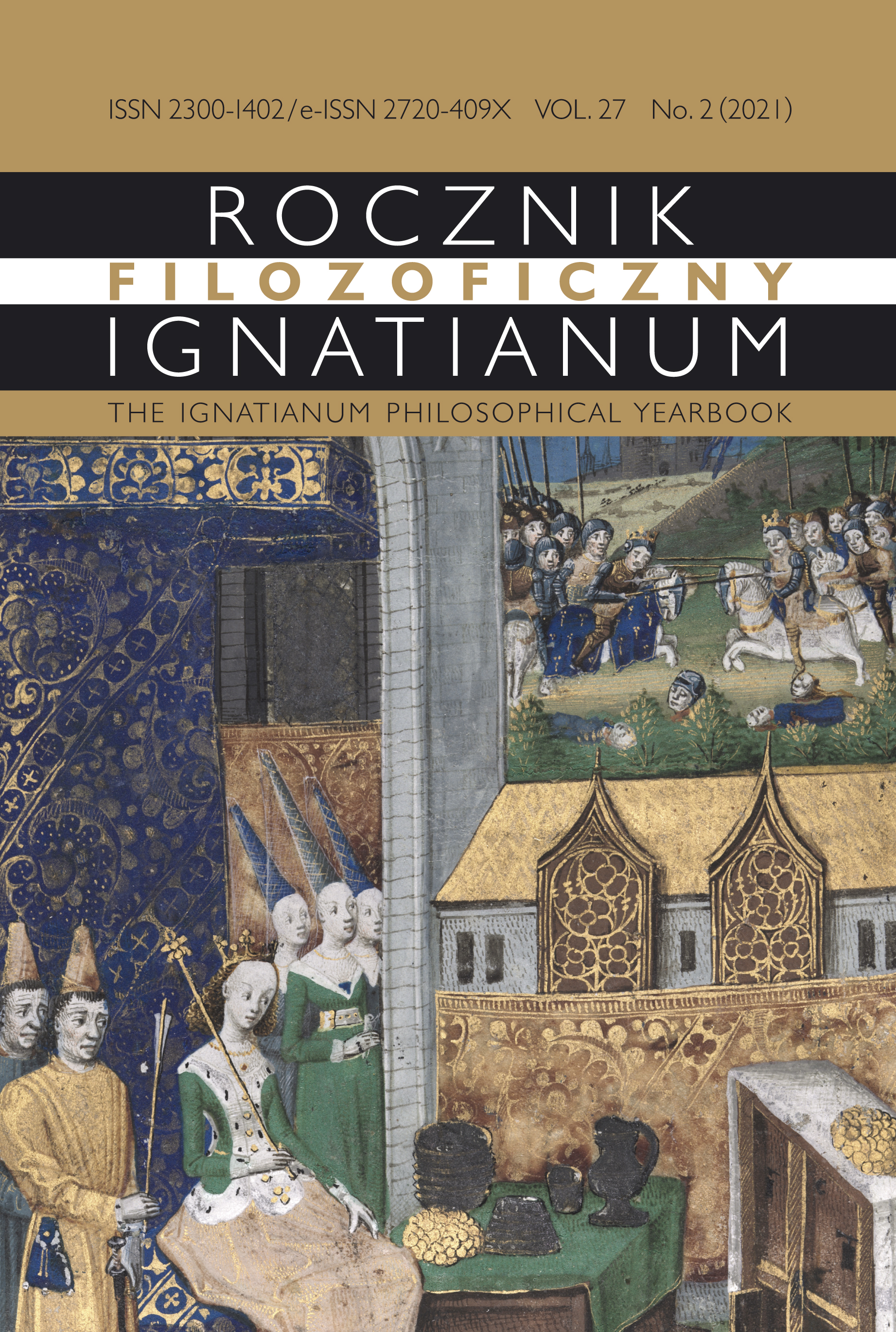Pajdokracja w ujęciu Feliksa Konecznego w kontekście współczesnych form zjawiska
Abstract
W artykule podjęto próbę analizy przekonań Feliksa Konecznego na temat pajdokracji w kontekście współcześnie obserwowanych form aktywności politycznej młodzieży. W tym celu zostały omówione wybrane teksty na temat pajdokracji opublikowane przez Konecznego na łamach dziennika „Słowo” w okresie od 16 września do 22 października 1912 r. W tym czasie krakowski uczony napisał: „O pajdokracji”, „Partenogeneza pajdokracji”, „Pajdokracja z prowokacji”, „Młodzież jako środek reklamy”, „Młodzież jako rzekoma rękojmia przyszłości”, „Pajdokracja i apatia”, „Stronnictwa a pajdokracja”, „Brak pajdokracji w Wielkopolsce”, „Patryjotyzm bez zajęcia” oraz „Szacunku dla młodzieży”. Na podstawie analizy tekstów źródłowych przedstawiono definicję pajdokracji, jej przyczyny oraz skutki. Te informacje zostały zestawione z innymi ujęciami pajdokracji (np. pedagogicznym) oraz z jej współczesnymi obliczami. Koneczny oceniał pajdokrację jednoznacznie negatywnie. Uważał, że jest ona szkodliwa społecznie i wynika z błędnych przekonań. „Rządy młodzieży”, w opinii historiozofa, są inspirowane tylko i wyłącznie przez dojrzałych polityków, którzy manipulują młodymi w celu realizacji własnych zamierzeń. Takie postępowanie wynika z braku szacunku dla młodzieży, o który Koneczny wyraźnie zabiega. Badacz dostrzega wiele zalet młodych Polaków, ale równocześnie ma świadomość, że pewne cechy młodości nie są pożądane w polityce (jak brak kompetencji, naiwność, podatność na wpływ czy emocjonalność). Dochodzi do wniosku, że jedynym sposobem zwalczenia pajdokracji mogłoby być całkowite odsunięcie młodych od polityki. Równocześnie zdaje sobie sprawę, że tak radykalne rozwiązanie nie jest możliwe. W swoim wywodzie Koneczny nie tylko opisuje wady pajdokracji, ale również wskazuje, jak można z nią walczyć.
Copyright (c) 2021 Akademia Ignatianum w Krakowie

Dieses Werk steht unter der Lizenz Creative Commons Namensnennung - Keine Bearbeitungen 4.0 International.
Rocznik przyjmuje do druku wyłącznie materiały, które nie wchodzą w żaden konflikt interesów, żaden konflikt z prawem autorskim itp. Redakcja prowadzi działania przeciw: plagiatom, ghostwriting1, guest/honorary authorship2 itp. Autor pracy zbiorowej, który jest pierwszy na liście, bierze na siebie odpowiedzialność i ma obowiązek przedstawić wkład wszystkich współautorów. Jeśli publikacja powstała dzięki dedykowanym środkom finansowym, należy ujawnić to np. w Podziękowaniu, przypisie itp. Ew. przedruki wymagają jawnego zgłoszenia i okazania odpowiedniego pozwolenia wydawniczego. Autorzy / Recenzenci nierzetelni narażają się na reakcję właściwą stosownym instytucjom.
______
1 Ma to miejsce, gdy osoba mająca istotny wkład jest pominięta na liście Autorów czy w Podziękowaniu.
2 Zachodzi, gdy na liście autorskiej pojawia się osoba mająca znikomy/żaden udział w pracy.





